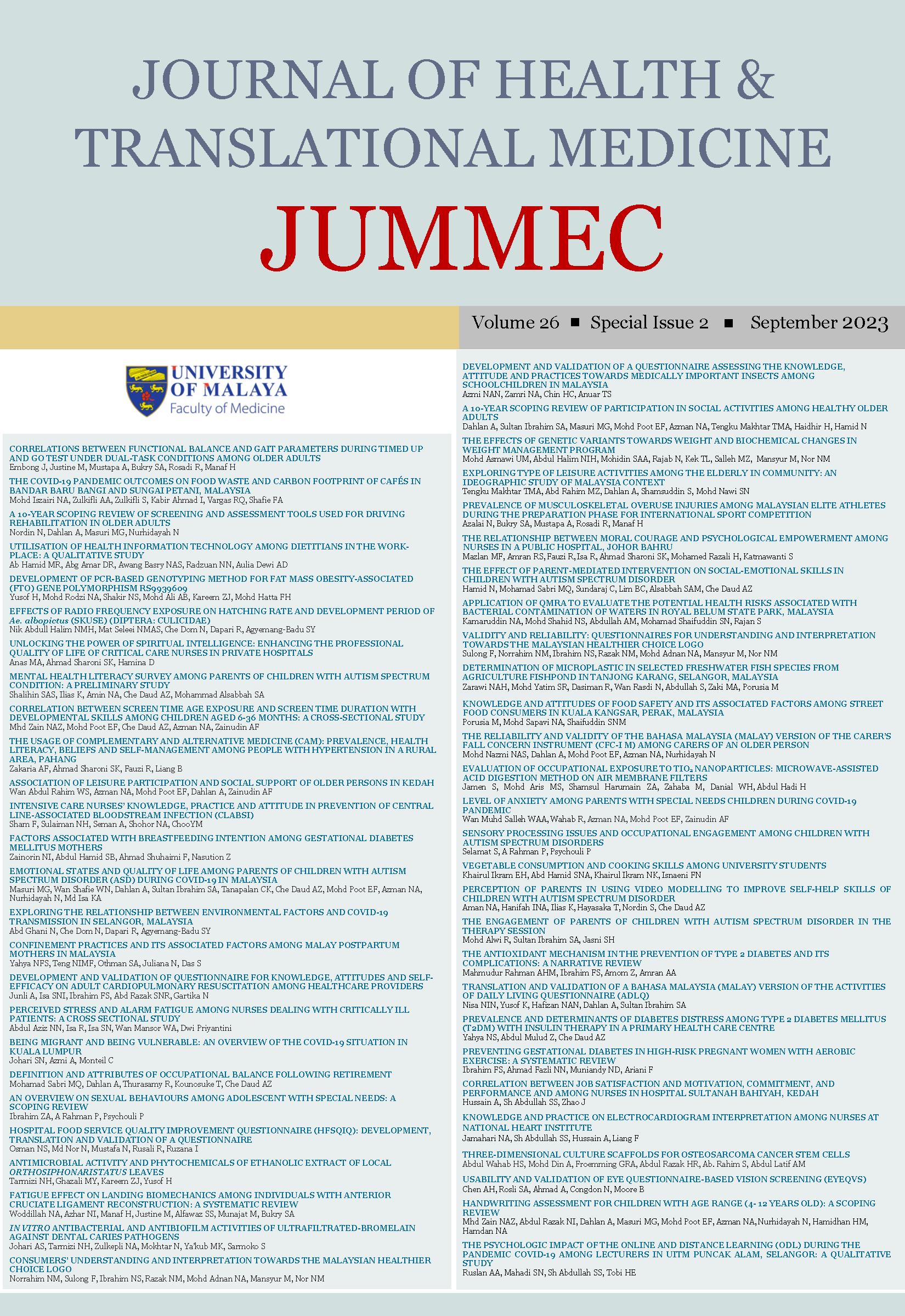IN VITRO ANTIBACTERIAL AND ANTIBIOFILM ACTIVITIES OF ULTRAFILTRATED-BROMELAIN AGAINST DENTAL CARIES PATHOGENS
Received 2023-07-13; Accepted 2023-09-07; Published 2023-09-15
DOI:
https://doi.org/10.22452/jummec.sp2023no2.25Keywords:
Bromelain, Biofilm, Pineapple, Dental Caries, EnzymeAbstract
Dental plaque on tooth surfaces significantly contributes to dental caries leading to acidic demineralization of the tooth enamel and dentin. This is mainly caused by the formation of pathogenic bacterial biofilm. Dental caries affects approximately 3.5 million people around the world. Compared to synthetic anticariogenic agents such as chlorohexidine, plant-based compounds were found to have fewer side effects and higher economic value. Pineapple (Ananas comosus) is one of the largely commercialized plants in Malaysia with beneficial attributes such as its Bromelain enzyme. This study aimed to purify Bromelain enzyme from MD2 pineapple core and to evaluate their antibacterial properties against dental caries-associate pathogens in vitro. This study evaluated the effect of Bromelain enzyme isolated from MD2 pineapple core using 50% Ammonium Sulphate precipitation incorporated with centrifugal ultrafiltration against Streptococcus mutans, Staphylococcus aureus, Lactobacillus acidophilus, and Lactobacillus casei. Bromelain enzyme showed effectivity of Minimum Inhibitory Concentration (MIC) and Minimum Bactericidal Concentration (MBC) for all cariogenic organisms. Ultrafiltrate Bromelain (UFB) enzyme had significant antibacterial activity against S.mutans with a MIC value of 250 μg/ml and complete susceptibility at an MBC value of 1000 μg/ml. Biofilm inhibition against S.mutans increased from 45.98% to 57.48% with ultrafiltration. A 3.25 purification fold increase was observed in the ultrafiltrate sample. In conclusion, the ultrafiltration technique is efficient in purifying Bromelain enzyme and effectively inhibits S. mutans biofilm formation and thus possesses a potential inhibitory effect on dental caries in vitro.
Downloads
Downloads
Published
Issue
Section
License
All authors agree that the article, if editorially accepted for publication, shall be licensed under the Creative Commons Attribution License 4.0 to allow others to freely access, copy and use research provided the author is correctly attributed, unless otherwise stated. All articles are available online without charge or other barriers to access. However, anyone wishing to reproduce large quantities of an article (250+) should inform the publisher. Any opinion expressed in the articles are those of the authors and do not reflect that of the University of Malaya, 50603 Kuala Lumpur, Malaysia.


